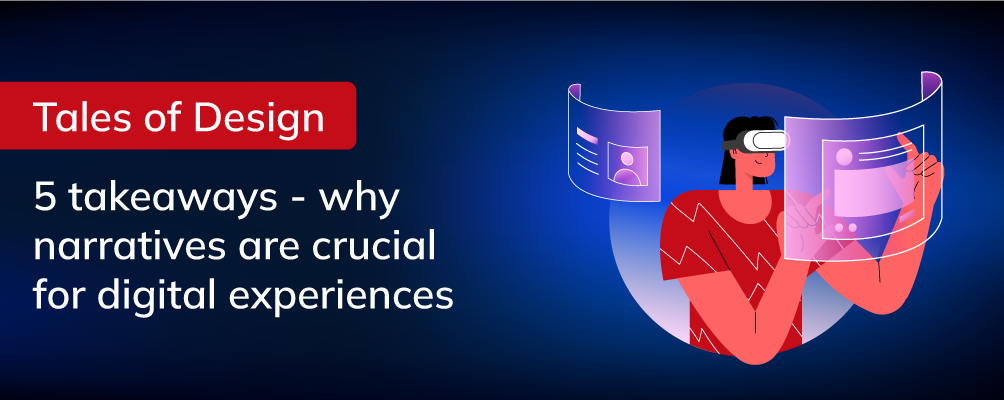
In our recent Tales of Design webinar, Dan Foster, Design Director at HANSPRINGETT Ltd. shared insights on creating compelling designs by narrating a story. He also mentioned key takeaways – why creating digital narratives is crucial
Immersive Experiences:
- Digital narratives tell a story and create immersive experiences for the audience. These narratives are impactful, they evoke emotions, spark curiosity, keeping the audience engaged on a digital platform.
Designing with Empathy:
- To create digital narratives, creators need to understand their audience deeply. Keeping the audience in the centre of the narratives helps creators tailor authentic experiences that foster meaningful connections.
Business Impacts:
- Compelling digital narratives have significant business impacts, enhancing brand awareness and driving measurable results. By creating memorable experiences, brands can differentiate themselves in crowded markets, create brand advocates, and drive customer conversions.
Extending Beyond Screens:
- Digital narratives have the potential to inspire action, foster social change, and create real-world connections. Brands and creators can leverage the power of digital narratives to raise awareness about pressing social issues while promoting sustainability and driving positive societal change.
Power of Storytelling in Design:
- Storytelling in design enhances the user experience, creates emotional connections, and leaves a lasting impression.
How to Craft Digital Narratives
The art of crafting digital narratives in design means using digital technology to tell compelling stories. It’s about creating engaging experiences that captivate people’s attention and leave a lasting impression.
We can use the following elements –
- Communicating visually through visual hierarchy
- Using colours to evoke certain emotions
- Selecting typefaces to set the tone and readability
- Composing a visual symphony
- Applying Golden Canon Grid and Golden Ratio Scale design principles to create visually balanced and aesthetically pleasing designs.
Framework to use:
A design framework is like a roadmap or set of guidelines that designers follow to create effective designs. It helps them stay organized, make informed decisions, and ensure that their designs meet the desired goals. Here are the different frameworks you can use to craft your digital narratives.
Types of Frameworks:
- Elemental Framework – Used by The Northface
- Sequential Framework – Netflix uses it
- Multiple perspectives framework – Airbnb uses this framework for a diverse target audience
- Hero Framework – Pokemon GO uses it to keep the protagonist in the centre
No Comments